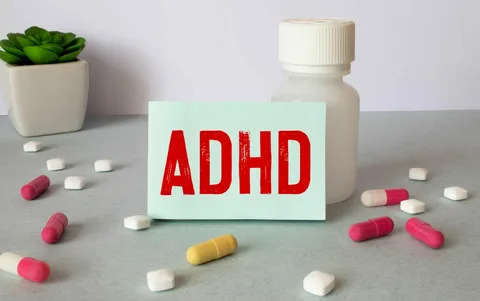
ADHD Medication and Driving Safety: Tips for Individuals and Families
Overview
Driving is a crucial part of independence and mobility for many persons. However, for those with Attention Deficit Hyperactivity Disorder (ADHD), driving safely can present particular issues. ADHD can compromise attention, impulse control, and executive functioning, which are key skills for safe driving. This article discusses the relationship between ADHD medication and driving safety, including advice for individuals and families to promote safe driving practices.
Understanding ADHD and Its Impact on Driving
ADHD Symptoms and Driving Challenges
Individuals with ADHD may suffer symptoms such as inattention, impulsivity, hyperactivity, and difficulties sustaining focus. These symptoms might provide issues when driving, leading to distractions, poor decision-making, and higher risk of accidents.
Executive Functioning and Driving Skills
Executive functioning skills, including planning, organization, time management, and impulse control, play a significant part in driving safely. Deficits in these areas related to ADHD might hinder a person’s ability to foresee hazards, observe traffic laws, and react effectively to changing road conditions.
Role of ADHD Medication in Driving Safety
Increasing Focus and Attention
ADHD medicine, when prescribed and administered as instructed, can help increase attention and focus. Enhanced attention can lead to better concentration when driving, minimizing the likelihood of being distracted by external stimuli or internal thoughts.
Enhancing Executive Functioning
Medication can also help executive functioning skills, such as impulse control and decision-making. This can result in more thoughtful and cautious driving practices, adding to overall safety on the road.
Tips for Individuals Taking ADHD Medication and Their Families
Follow Prescribed Treatment Plan
It is vital for patients with ADHD to adhere to their prescribed treatment plan, including taking medication as directed by their healthcare professional. Consistent medication use can maximize symptom management and promote safer driving practices.
Know Your Medication’s Effects
Understand the effects of ADHD medication on your cognitive and motor skills, particularly during the first phases of therapy or when dose modifications are made. Some drugs may cause sleepiness or impair reaction times, which might impact driving ability.
Regular Monitoring and Communication
Healthcare practitioners should perform regular monitoring of drug efficacy and potential side effects connected to driving. Patients and relatives should express any concerns or changes in symptoms to promote best treatment outcomes and driving safety.
Educate About Safe Driving Practices
Educate individuals with ADHD and their families about safe driving practices, including keeping focus, avoiding distractions (e.g., texting, chatting on the phone), following traffic regulations, and regulating emotions while driving.
Addressing Concerns About ADHD Medication and Driving
Possible Adverse Reactions
Some ADHD drugs may have adverse effects that could impair driving safety, such as drowsiness, dizziness, or changes in mood. It is vital to be aware of these potential consequences and take appropriate measures, such as avoiding driving during peak side effect hours or changing prescription timing in collaboration with a healthcare provider.
Risk of Impulsivity
Impulsivity is a typical characteristic of ADHD that can impact driving behavior. Individuals should be cognizant of impulsive acts, such as speeding or unexpected lane changes, and focus on skills to regulate impulsivity while driving, which may include mindfulness techniques or cognitive-behavioral tactics.
Creating a Supportive Environment for Safe Driving
Family Involvement
Families play a significant role in assisting individuals with ADHD in their driving endeavors. Encourage open communication, provide advise on safe driving behaviors, and be proactive in resolving any issues or challenges linked to medicine and driving.
Driver Training and Skill Development
Consider enrolling in driver training programs or getting specialist driving assessments for those with ADHD. These programs can provide individualized techniques, simulations, and feedback to improve driving abilities and confidence.
In summary
ADHD medication can play a useful effect in enhancing driving safety for those with ADHD. By understanding the impact of ADHD on driving skills, following recommended treatment regimens, educating about safe driving habits, and building a supportive atmosphere, individuals and families can enhance driving safety and reduce dangers on the road. Regular communication with healthcare providers and continual monitoring of medication effects are critical components of maintaining safe and responsible driving behaviors for those with ADHD.





Leave Your Comment